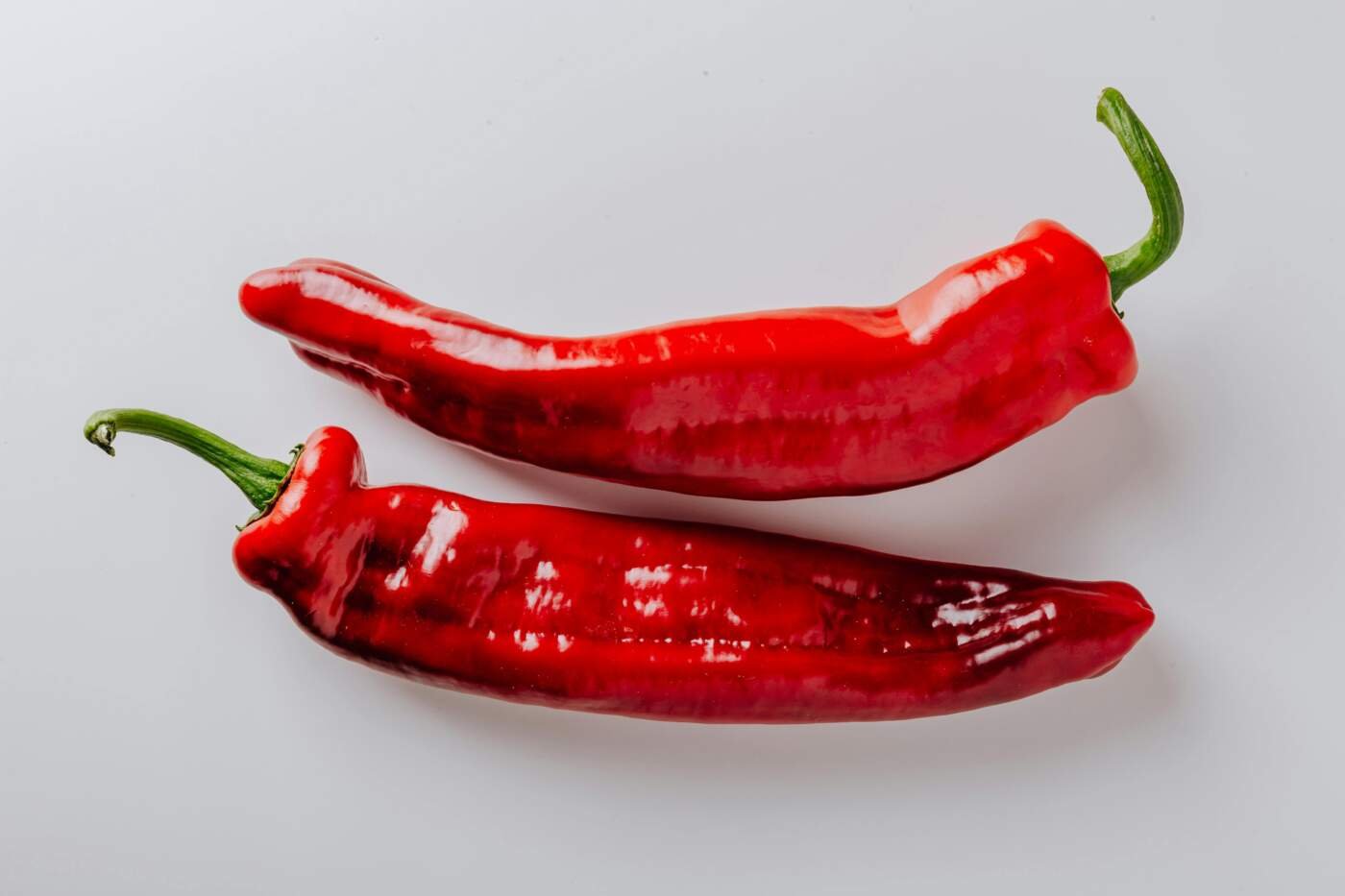Chili peppers, particularly varieties like cayenne, jalapeños, and habaneros, are small but mighty fruits that have made a name for themselves in kitchens around the world. Beyond their heat and flavor, they have a range of health benefits that make them a superfood worthy of attention. For centuries, cultures across the globe have used chili peppers in both culinary and medicinal contexts, and modern research is beginning to catch up with the ancients’ wisdom. Let’s explore the various ways chili peppers can benefit your body.
1. Rich Source of Nutrients
Chili peppers are packed with essential vitamins and minerals. Even in small amounts, these fiery fruits can provide substantial nutrients, such as:
- Vitamin C: Chili peppers are rich in vitamin C, an essential antioxidant that supports immune function, skin health, and wound healing. Just one serving of chili peppers can supply over 100% of the daily recommended intake of this vital nutrient.
- Vitamin A: Peppers, especially the red varieties, are abundant in beta-carotene, which the body converts into vitamin A. This vitamin is crucial for maintaining healthy vision, skin, and mucous membranes. Vitamin A also plays an important role in supporting the immune system and reproductive health.
- B Vitamins: Chili peppers contain several B vitamins, including B6, which helps with energy production, brain development, and reducing the risk of cardiovascular disease.
- Capsaicin: The compound that gives chili peppers their heat, capsaicin, also offers numerous health benefits, from pain relief to metabolism boosting, which will be discussed in more detail.
Despite their small size, chili peppers are nutrient-dense and can contribute significantly to a balanced diet when consumed in moderation.
2. Boosts Metabolism and Aids in Weight Loss
One of the most well-known benefits of chili peppers is their ability to boost metabolism. This effect is largely due to capsaicin, which has thermogenic properties, meaning it increases the heat production in the body, thereby burning more calories.
- Thermogenesis: Studies have shown that consuming capsaicin can elevate the body’s metabolic rate for several hours after consumption. This process, known as thermogenesis, helps burn fat and prevent weight gain.
- Appetite Suppression: Some research suggests that capsaicin may also reduce appetite. People who consume spicy foods tend to feel more satisfied and may consume fewer calories overall. This is partly due to capsaicin’s impact on appetite-regulating hormones.
- Fat Oxidation: In addition to curbing hunger, capsaicin has been found to enhance the body’s ability to break down and utilize fat for energy. This could be particularly beneficial for those looking to lose weight or maintain a healthy weight.
Thus, incorporating chili peppers into your diet may help you control your weight more effectively and boost your fat-burning potential.
3. Improves Heart Health
The cardiovascular benefits of chili peppers are significant, with several studies suggesting that capsaicin may support heart health in various ways:
- Reduced Inflammation: Chronic inflammation is a risk factor for many cardiovascular diseases, including atherosclerosis. Capsaicin has been shown to have anti-inflammatory properties, which may help reduce the risk of heart disease.
- Lowers Blood Pressure: Some studies indicate that capsaicin can help lower blood pressure by promoting better circulation and relaxing blood vessels. This effect is especially beneficial for those with hypertension.
- Improves Cholesterol Levels: Capsaicin may help reduce levels of LDL (“bad”) cholesterol while increasing HDL (“good”) cholesterol. This improves the balance of lipids in the bloodstream, reducing the risk of plaque buildup in arteries.
- Prevents Blood Clots: Capsaicin can also act as a blood thinner, which helps prevent dangerous blood clots from forming. This reduces the risk of heart attacks and strokes.
By improving lipid profiles, reducing inflammation, and supporting blood flow, chili peppers can contribute to a healthier cardiovascular system.
4. Pain Relief and Anti-Inflammatory Properties
Capsaicin is well-known for its use in topical creams and ointments designed to alleviate pain. How does a spicy compound that can set your mouth on fire help relieve pain? The answer lies in how capsaicin interacts with nerve receptors.
- Desensitization of Pain Receptors: Capsaicin works by desensitizing TRPV1 receptors, which are responsible for transmitting pain signals to the brain. When these receptors are repeatedly exposed to capsaicin, they become less responsive to pain stimuli. This mechanism is why capsaicin is commonly used to relieve pain associated with arthritis, neuropathy, and muscle strains.
- Anti-Inflammatory Action: Chronic inflammation is at the root of many conditions, including arthritis, asthma, and inflammatory bowel disease (IBD). Capsaicin has anti-inflammatory properties, which can help mitigate the effects of these conditions. In some cases, it may even reduce the need for non-steroidal anti-inflammatory drugs (NSAIDs), which can have harmful side effects with long-term use.
Whether consumed or applied topically, capsaicin’s pain-relieving properties make chili peppers a useful tool for managing chronic pain and inflammation.
5. Supports Digestive Health
Contrary to the belief that spicy foods can harm the stomach, moderate consumption of chili peppers may actually be beneficial for digestive health. Capsaicin plays a key role in this process:
- Stomach Protection: Capsaicin can stimulate the production of mucus in the stomach, which acts as a protective barrier against ulcers. Some studies have suggested that capsaicin may even help prevent the formation of gastric ulcers by inhibiting the growth of certain bacteria, like Helicobacter pylori, which is known to contribute to ulcer development.
- Promotes Healthy Gut Bacteria: Chili peppers can also act as a prebiotic, encouraging the growth of beneficial bacteria in the gut. A healthy balance of gut bacteria is essential for overall digestive health, immune function, and even mental well-being.
- Alleviates Symptoms of IBS: In some cases, capsaicin has been found to reduce symptoms of irritable bowel syndrome (IBS), particularly in individuals who experience bloating and abdominal discomfort.
Although more research is needed, the existing evidence suggests that chili peppers can have a protective and therapeutic role in digestive health.
6. Boosts Immunity
The high levels of vitamins A and C in chili peppers contribute to a stronger immune system. These vitamins are known for their role in fighting infections and supporting overall immune function.
- Vitamin C’s Role: As mentioned earlier, vitamin C is a powerful antioxidant that neutralizes free radicals and helps the body fight off infections. It also enhances the production of white blood cells, which are essential for a robust immune response.
- Vitamin A’s Role: Vitamin A, another potent antioxidant found in chili peppers, plays a crucial role in maintaining the health of the respiratory and digestive tracts, the body’s first lines of defense against infections.
Incorporating chili peppers into your diet can provide a significant boost to your immune system, helping your body fend off common illnesses such as colds and flu.
7. Promotes Longevity
Research has suggested that people who consume spicy foods regularly may live longer than those who don’t. A study conducted by the Harvard School of Public Health found that people who ate spicy foods six to seven times per week had a 14% lower risk of premature death compared to those who ate them less than once a week.
The exact reasons for this link are still being studied, but it’s believed that the cardiovascular, anti-inflammatory, and metabolic benefits of chili peppers play a significant role in promoting longevity.
8. Improves Respiratory Health
For centuries, chili peppers have been used as a natural remedy for respiratory conditions. Capsaicin has the ability to clear mucus from the nasal passages and lungs, making it easier to breathe. This decongestant effect can be particularly helpful for people suffering from conditions such as:
- Asthma: Capsaicin can help open up the airways and reduce bronchial constriction, making breathing easier for those with asthma.
- Sinusitis: The heat from chili peppers can help thin out mucus, making it easier to expel and alleviating symptoms of sinusitis.
- Chronic Bronchitis: People with chronic bronchitis may benefit from the expectorant properties of chili peppers, which help to clear phlegm from the lungs.
Chili peppers’ ability to act as a natural decongestant and their anti-inflammatory properties make them a useful aid in respiratory health.
Conclusion
Chili peppers offer a host of benefits for the body, from boosting metabolism and improving heart health to relieving pain and supporting digestion. Their rich nutrient profile, combined with the potent effects of capsaicin, makes them a powerful addition to any diet. Whether you enjoy them in a spicy meal or use them topically for pain relief, chili peppers can provide numerous health benefits. By incorporating these vibrant fruits into your diet in moderation, you can enjoy their heat and flavor while reaping the rewards of their health-boosting properties.




Leave a Comment